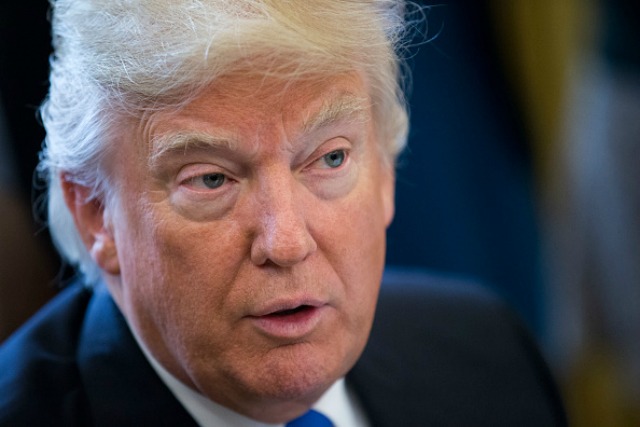5 Ways Trump Can Help Fix Chicago Violence Without The National Guard
By Stephen Gossett in News on Jan 25, 2017 4:21PM

Getty Images / Photo: Pool
Hitting a familiar refrain, Donald Trump on Tuesday night ominously tweeted that he'd "send in the feds" to Chicago if the city doesn't "fix the horrible "carnage,"" noting that violent crime is outpacing last year's (decades-high) numbers. Rather than going to the nearly unprecedented extreme of brining in the national guard to curb crime rates (if that's indeed to what Trump is referring), there are other ways the president could help fix Chicago's violence—if he's serious about it.
Push for federal gun control laws and violence research
Given the GOP's often NRA-funded history of staunch opposition to federal gun control, this would seem unlikely. But the gun lobby would also have to to be considered among the swampiest, most drainable lobbies of all #DrainTheSwamp targets to buck. The NRA has also played an integral role in getting lawmakers to block federal funding for gun-violence research for the last two decades. Either federal avenue should at least be on the table.
Pressure Indiana to reform its gun laws
Gun-control opposition holds up Chicago—a combination of strict gun regulation and high violent crime—as evidence for the futility of regulation. But that argument of course ignores the fact that many of Chicago's guns stream across the Indiana border. "According to an anonymous survey of inmates in Cook County, Ill., covering 135 guns they had access to, only two had been purchased directly from a gun store," The New York Times wrote in a 2015 analysis. Al Jazeera found last year that nearly 60 percent of guns used in Chicago crime were purchased outside Illinois, and 20 percent were from Indiana. With former governor Mike Pence at his right hand and the presidential bully pulpit in front of him, it would be an option, again, if Trump is serious.
Federal assistance for jobs and anti-violence programs
When Trump previously tweeted about federal intervention, before Tuesday night, he seemed to leave the door open for that to manifest itself as federal dollars. It's something that has been championed by everyone from Rep. Danny Davis to Mayor Emanuel to Rhymefest. Disinvestment from poor communities fuels violent crime more than any other factor in Chicago, according to a local criminologist. Federal assistance for jobs programs—not to mention grassroots anti-violence organizations like CeaseFire—would seem to be good cornerstones to a multitiered approach.
Take the Department of Justice recommendations seriously
Unsolved murders breed more murders, according to the Murder Accountability Project; and Chicago's 2016 clearance rate of 25.6 percent was well below the national average of 61.5 percent. If detectives hope to raise the clearance level, the Chicago Police Department should take steps to repair police/community ties, the Department of Justice found. Trump should urge his Attorney General nominee Jeff Sessions to facilitate those reforms rather than impede a consent decree.
Be clear
When Trump says he'll send in the feds, he could be referring to, say, bringing in agents from the Bureau of Alcohol, Tobacco, Firearms and Explosives to help stem violent crime rates—a move that Chicago has seen as recently as 2014. But those are case-by-case situations, applicable only when a federal agency has jurisdiction as merited by the nature of the case. Such moves still has to be part of a larger whole set of actions, according to experts, but it's not unprecedented. The president should leave aside the open-ended alarmism and clarify.